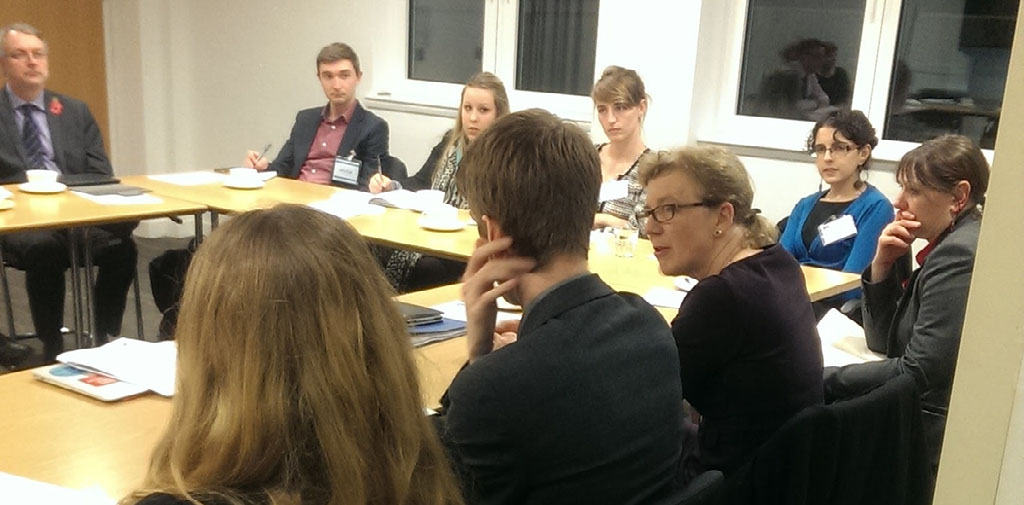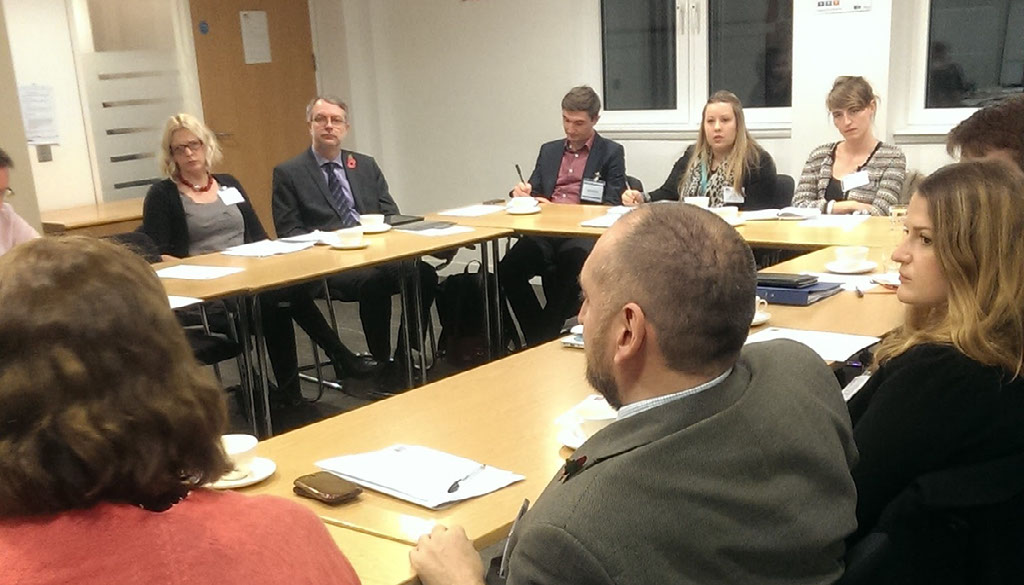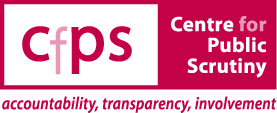CfPS Devolution Roundtable 10th November, Local Government House
CfPS invited a select group of experts together to discuss some of the key issues in the "devolution revolution". We had three key questions that we sought answers for:
- Why is devolution important for local areas?
- Is central government leading the devolution debate on governance in the right way?
- Are decision makers doing enough to engage the public in the changes being made in their name?
There was a wide sense of agreement that the promise of devolution was a tantalising one. Delegates acknowledged that devolution could unlock opportunities to deliver local strategies as well as reset local relationships in a way which could boost economic growth in the local area.
"Devolution provides the opportunity to reset relationships – between government and authority, between county and district."
"For us it was simple. Devolution is a tool for us to deliver our strategy."
Despite the differing viewpoints and perspectives of our participants, a lively debate led to agreement on some basic principles that all the parties agreed were necessary for devolution to be successful.
- Devolution deals need to be done with a strong clarity of purpose, and with a clear set of measurable goals.
- Robust decision making and scrutiny arrangements are vital.
- Devolution cannot merely be presented to the wider public as a done deal
Some participants were pessimistic, suggesting that decision makers had “neither the time nor the will to engage with the public during the deal making process”. Others were more positive, pointing towards the Coventry Citizens’ Panel (and other attempts at deliberative approaches) as a successful attempt to get local people engaged and involved in the devolution process from the very beginning.
"Before we can expect the public to have a role, we need to empower them to be able to understand what is agreed."

Another sticking point was on the extent to which governance arrangements should be prescriptive in the Devolution Bill currently progressing through Parliament. Some argued that “when you put a script to (devolution)…it loses something”, while others emphasised that it was much more important to imbue a serious culture of scrutiny within governance structures than to simply discuss formal arrangements. It perhaps doesn’t help that the governance demands for the deal-making process are arguably different to those which will emerge once new arrangements are in place.
"There’s a crucial discussion to have about governance structures – even with the best asks in the world, without a robust governance structure, we won’t be able to deliver."
The devolution settlement process is well underway now, with the first Metro Mayor election set to be held in Greater Manchester in 2017. As time goes on, expectations around what devolution looks like, and how it should feel, will become more set.

It was unsurprising that the delegates admitted that there were governance-related dangers around the devolution agenda, pointing to the breakneck speed at which it is taking place as a particular risk.
"Lots of local areas are going for devolution because they believe it’s the only game in town."
Nonetheless the general feeling around the room was one of cautious optimism – of a real chance to bring decision making closer to the people and at the same time boost economic growth. Ultimately, it is only when we see devolution in action that we will know if decision makers truly considered the Whys and the Hows of devolution before rushing in.
